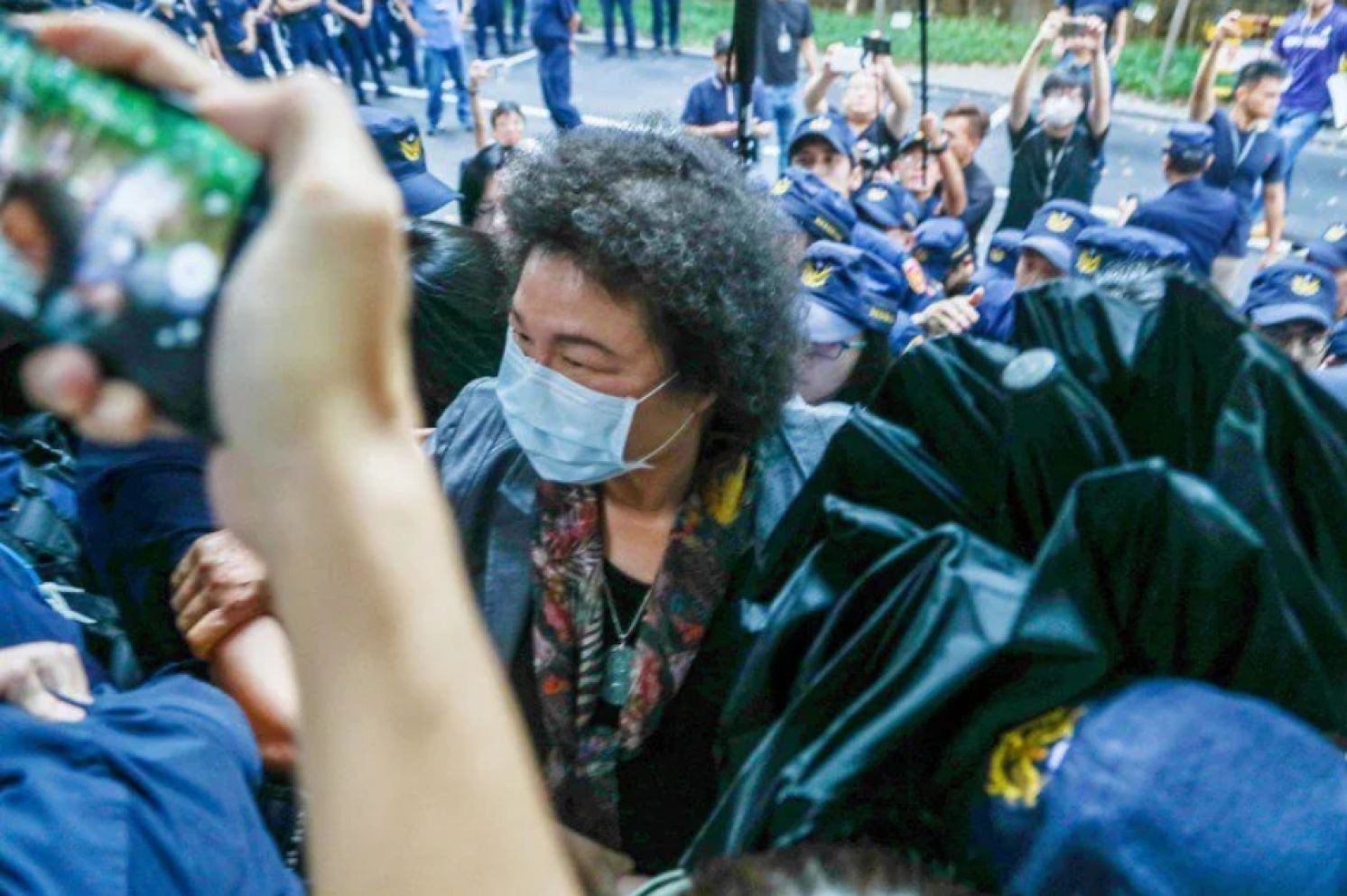
DPP Nominations Corroborate “Peter Principle”
United Daily News Editorial, July 15, 2020
The nomination of Chen Chu as president for Control Yuan was reviewed in the Legislative Yuan yesterday. The ruling party not only set up four layers of barbwire barricade outside the Legislative Yuan, but also stationed police on its roof, as if facing an indomitable enemy. A simple case of personnel appointment so highly guarded was nothing but a tremendous irony and humiliation to Chen, who claims that her political imprisonment justifies her being appointed to head the Human Rights Commission. Facing her own appointment arousing such a huge wave of social controversy, her political career up to today, Chen, we wonder if she has a slight feeling of remorse?
From the “little sister of the opposition” to the “big sister of the party,” her identity as “sufferer of the Kaohsiung Incident” is still Chen Chu’s most shining trademark. However, she has been hundred thousand miles away from that “little sister”. Over five years as minister of the Council of Labor Affairs; 12 years as mayor of Kaohsiung, two years as secretary-general to the President, plus her identity as a heavyweight of powerful New Tide faction within the ruling Democratic Progressive Party (DPP), she has transformed to a mega head in the politic platform. However, on the infinite level of power ladder, she still desires to climb higher, thus bringing to herself storms of controversies. The “little sister of the opposition” was respectable then because she was wholeheartedly devoted to democracy and putting aside her own future; but today, this “big sister of the party” prioritizes party and faction first, democracy second, and country third.
The Peter principle in business administration can best explain the circumstances of Chen Chu today. The Peter principle says that in organizational hierarchies, such as that of a corporation, is for every employee with traits to rise in the hierarchy through promotion until they reach a level of respective incompetence, thus becoming obstacle of the corporation instead. The biggest trait of Chen is her identity as a victim of Kaohsiung Incident, and this has been the crucial factor in each her appointment and election. Today, she finally comes to the chief post of one of the five branches of the central government yet encounters hurdles. In the perspective of Peter principle, she has climbed up to the post where her morality and competence are not suitable, thus she becomes a burden the administration of President Tsai Ing-wen must shoulder.
Chen’s problem is not her halo as a sufferer fades, but she has accumulated too many suspicions in her political career history making her unsuitable for this post of monitoring and impeaching officials. Above all, after President Tsai took office in 2016, Chen used her influence in political party and party factions, continuously placing her confidantes and close kin from the Kaohsiung city hall in key posts among central government and state-run corporations. The number of those officials she placed is stunning. Among them, her office chief staff Cheng Wen-sheng sentenced for forging her itinerary during Typhoon Fanapi onslaught was appointed deputy minister of economic affairs through Premier William Lai on the eve she was designated as secretary-general to the President. Thus, how can a person using Cabinet posts to return for favors to lead the ombudsman office with justice and impartiality?
Similar cases are omnipresent within the DPP. For instance, the recently exposed General Manager Chang Chong-chieh of Tang Eng Iron Works Company with four major scandals. Chang being a grass root blacksmith and the nephew of former Legislative Yuan Speaker Su Jia-chyuan, was promoted to the rein-holding general manager from the chairman of labor union. He never knew how to run the company but was suspected of indulging in playing favoritism and all fouls, completely testifying the prediction of Peter principle.
Furthermore, two months ago, then Minister of Economic Affairs Shen Jong-chin, although not close kin to the “royal family,” was promoted to vice premier because of his traits of “mediocrity” and “no pose of threat.” During his tenure as an economic minister, he hardly left any impressive achievement. Finally, he became a household figure during pandemic prevention period when he squatted to supervise the mask production line thus dubbed the “strongest old man”. As reflected by the Tsai administration’s appointment philosophy, no wonder Taiwan’s economy cannot break through its current backwardness. As to the new Minister of Economic Affairs Wang Mei-hua and her husband Secretary-General Koo Li-hsiung of the National Security Council, who can tell how they are going to develop national economy and safeguard national security with their law specialty. At last, will they become other reagents to fulfill Peter principle?
These four years, if Chen Chu did not so aggressively place her men to the central government including Chen Chin-te, Wu Hung-mou disregarding the outside criticism, leaving notorious impression of favoritism playing, her appointment as president of Control Yuan would not hit so many snags. But what worries us most is that the Tsai administration seems to have established “the principle of exclusion” in its appointment. Any non-DPP party or faction comrades, kin relatives or confidants to the “royal family” will never have favors in the eyes of the ruler despite how competent or justifiable social talents they are. The DPP used to criticize the “proliferation of close kin” of the Kuomintang. Now, they are following suits; but before the reflecting demon mirror of Peter principle, everything will be forced to reveal.